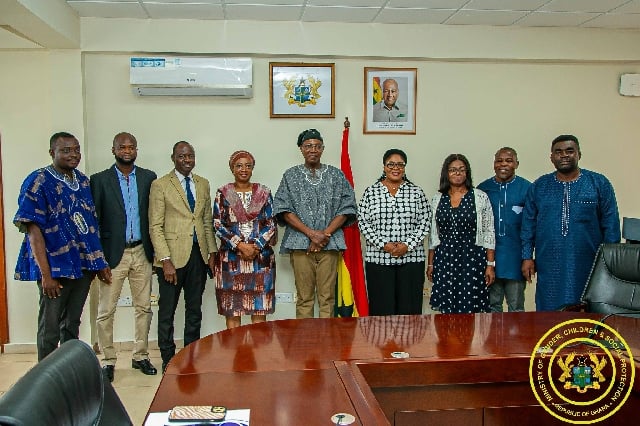The Ghanaian government, represented by the Ministry of Gender, Children and Social Protection (MoGCSP) and the Ministry of Education (MoE), is embarking on a significant social intervention aimed at improving the lives and educational prospects of young girls across the country. This initiative, known as the Free Sanitary Pad Initiative, is set to officially launch on April 24, 2025, and represents a critical step towards addressing the often-overlooked challenges girls face in managing their menstrual hygiene, particularly within the school environment. The program’s core objective is to dismantle one of the silent yet formidable barriers to girls’ education: the lack of access to affordable and readily available sanitary products. This proactive approach seeks to create a more equitable and supportive learning environment where girls can thrive academically without the added burden of period poverty.
The Free Sanitary Pad Initiative is not simply about providing sanitary products; it embodies a broader commitment to gender equality and the empowerment of young women. By ensuring access to these essential supplies, the government aims to alleviate the financial strain on families, reduce school absenteeism stemming from period-related issues, and ultimately improve girls’ academic performance and overall well-being. Menstruation, a natural biological process, should not be a deterrent to education. This program recognizes this fundamental right and seeks to create an environment where girls feel empowered to manage their periods with dignity and without compromising their educational pursuits. The initiative’s launch signals a significant stride towards achieving gender parity in education, a cornerstone of sustainable development.
The scale of the Free Sanitary Pad Initiative is impressive, aiming to reach an estimated two million girls in Junior and Senior High Schools nationwide. This ambitious undertaking underscores the government’s dedication to tackling period poverty head-on and ensuring no girl is left behind. The initiative reflects a comprehensive strategy that goes beyond simply distributing sanitary pads; it emphasizes the importance of education and awareness surrounding menstrual health. By fostering open conversations and destigmatizing menstruation, the program seeks to create a supportive environment where girls feel comfortable discussing their needs and accessing the necessary resources without shame or embarrassment. This holistic approach recognizes that true empowerment comes not only from providing material support but also from fostering understanding and acceptance.
The collaboration between the MoGCSP and the MoE highlights the multifaceted nature of this initiative, bringing together the expertise and resources of two key ministries to address a complex social issue. This joint effort demonstrates a concerted governmental commitment to promoting girls’ education and well-being. Dr. Agnes Naa Momo Lartey, Minister for Gender, Children and Social Protection, has been a vocal advocate for the program, emphasizing its critical role in removing barriers to education and empowering girls to reach their full potential. Her passionate advocacy underscores the government’s recognition that investing in girls’ education is not only a matter of social justice but also a crucial driver of economic development and national progress.
The government is not undertaking this ambitious project in isolation. It recognizes the vital role of public awareness and education in ensuring the initiative’s success. The media, as a powerful communication tool, has been called upon to play an active role in disseminating information about the program and its far-reaching impact. By amplifying the voices of young girls and highlighting the importance of menstrual hygiene management, the media can contribute significantly to destigmatizing menstruation and creating a more supportive environment for girls to thrive. This collaborative approach, involving both government agencies and the media, ensures that the message reaches a wider audience and generates broader societal support for the initiative.
The Free Sanitary Pad Initiative represents more than just a government program; it embodies a national commitment to investing in the future of Ghana’s young women. By removing the financial and social barriers associated with menstrual hygiene, the initiative paves the way for increased school attendance, improved academic performance, and ultimately, greater opportunities for girls to pursue their dreams and contribute meaningfully to society. This comprehensive strategy, encompassing not only the provision of sanitary products but also education and awareness-raising, sets a powerful precedent for other nations grappling with the issue of period poverty. It demonstrates that investing in girls’ education and well-being is not just a social imperative, but a smart investment in a brighter future for all.














